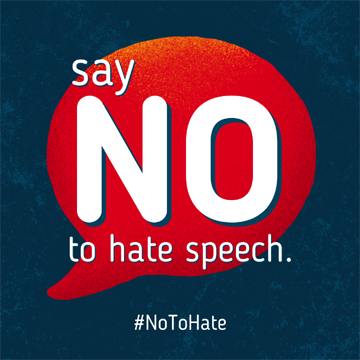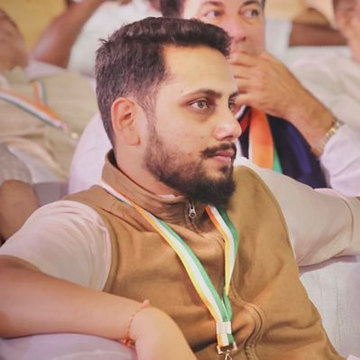
There needs to be an inspiring alternative agenda that enthuses India and which can move the silent majority away from the climate of hate
Today, more than ever, India needs an organised, programmatic and political counter to hate. We do not have the luxury to wait for an organic mass psychological realignment. The only question is: can we transcend narrow interests, and work collaboratively in the national interest?

The communal disturbances in Maharashtra, the performative religiosity in the new Parliament’s inauguration and The Kerala Story are all intrinsic to the Rashtriya Swayamsevak Sangh-Bharatiya Janata Party (RSS-BJP)’s larger cultural war. Vitiating mass consciousness, such issues typically pit Hindus against Muslims, elite establishmentarians against grounded ‘nationalists’ and constitutional values against ‘traditional’ values. Despite this war’s profound impact on India’s social fabric, little attention has been devoted to analyzing why atavistic tendencies acquire a social base. If most Indians live by the Ganga-Jamuni tehzeeb, nothing could make them communal, xenophobic, casteist, patriarchal or racist. Yet, studies show that India has become radicalized and socially conservative. To reverse the flames engulfing India (and other nations, as reports suggest in the context of the Leicester riots), dissecting the black box of hate is critical.
The anatomy of organised hate
There are broadly three types of hatred today — organised, inherited and absorbed hate. The first is methodically spearheaded by organizations like the RSS-BJP, invariably for partisan ends. Inherited hate is generationally passed down (usually caste, communal and gender prejudices), which is fertile soil for the champions of organised hate. Finally, absorbed hate is a disease afflicting the silent majority. The Sangh Parivar systematically targets both these constituencies, for short-term goals (influencing voting behavior, consensus on key issues and fundraising) and to convert permanently.
Progressive forces invariably counter the visible champions of organised hate, including party spokespersons, aligned influencers and organizations, as well as troll armies. They also resort to debunking misinformation or cornering regressive stances/action. Unfortunately, the RSS-BJP cannot be shamed, for they are unhinged from constitutional or institutional norms. Furthermore, their propaganda is complemented by a vast network of socio-cultural and religious organizations that subterraneanly spearhead ideological projects. In stark contrast, by striving only to shape public discourse, progressives put the onus of psychological consonance on the people. They assume that people will organically be swayed to progressive positions. Both empirical and anecdotal evidence suggests that this tactic is failing. Moreover, this strategy inadvertently oxygenates those historical-cultural issues that the Sangh deploys to frame every state policy and election as an existential war.
Unfortunately, there is no organised programmatic counter to hatred today. Bulldozers raze brazenly, mobs lynch with impunity, processions/films disrupt harmony and economic boycotts are organised with tactical precision, while the State maintains a studied indifference. Sadly, progressive parties avoid interventions against the forces of hate, as Karnataka’s Bajrang Dal and Maharashtra’s Kolhapur episodes suggest. This is partly because the Sangh can easily instigate retaliatory conflagrations, that invariably benefit the BJP electorally. However, given the BJP’s insatiable electoral greed, it is near-impossible for progressive parties to limit the impact area of any disturbance. But there are also structural reasons for this programmatic inertia. Most parties do not plan and execute programs on ideological issues, remaining excessively dependent on the State. They have forgotten the Congress movement’s lessons, which functioned independently of state machineries.
Structurally combating hate
Whole communities have shriveled in the face of the hatred engulfing India. Given this, there are both moral and pragmatic considerations to frontally tackle the fear that breeds regressive attitudes. First, we progressives need to acknowledge pre-existing societal fears of losing out on economic and political opportunities, and redress them. Not doing so enables the BJP to exploit those fault lines. For example, even though unemployment is a national problem, in the absence of a comprehensive strategy from progressives, the BJP successfully spins mass unemployment as a consequence of Muslim over-population (that is, jobs meant for Hindus are being ‘stolen’ by Muslims). Similarly, shrinking public sector jobs and educational opportunities are cynically blamed on reservations (indirectly holding Dalits, Adivasis and backward communities responsible), and not on the fire sale of public sector assets or on policies that make education inaccessible. Given this, progressives need to carefully assuage such fears. A first step could be posing an inspiring alternative agenda that enthuses India. Only then can we wean away the silent majority from the claws of hatred.
But progressive parties also need to put boots on the ground. In that spirit, they must actively collaborate with civil society, which transcends electoral exigencies. Serving as a complementary system, this could become both a response mechanism to conflagrations, and a network of progressive ideological projects. This would facilitate the forging of fresh relationships with new constituencies. One such constituency must be religious leaders/organizations, which progressives inexplicably avoid (thereby giving the RSS-BJP a blank cheque to assert that they represent all Hindus). Such a system would undoubtedly delegitimize atavistic causes.
Furthermore, progressive parties can substantively constrict regressive activities when in office, as the recently elected Karnataka government is doing. Just to cite some obvious examples, organizations frequently showcase movies to vitiate public discourse, conduct processions and sansads to disrupt the peace. While states can ban such organizations, this is only a stopgap since they invariably remerge in a new avatar. A more sustainable solution would be to spearhead out-of-the-box solutions that include shanti senas inculcating societal harmony, promoting films that espouse liberal, secular and democratic values, aggressively disseminating a constitutional narrative through alternative media, and ideological projects.
Fourth, progressives also need to check benefactors of regressive causes. A conflagration is sometimes a smokescreen to promote narrow economic interests. For example, the attack on abattoirs was both ideologically motivated and backed by economic competitors. Similarly, select diaspora groups support regressive projects for preferential treatment in commercial ventures in India. Mapping this financial infrastructure of hate would enable targeted counters using state instruments. A body blow can be delivered if the taps that empower regressive organizations can be closed. But this would need to be complemented by also addressing the non-partisan concerns of interest groups, satyagrahas against benefactors (who can be shamed), ensuring foreign funding does not foment hatred in India (which the compliance rules of most nations prohibit), and organised legal retribution.
Ideological and political commitment
India does not deserve ideological malleability or unprincipled politics (as witnessed during the Delhi riots in 2020). In this context, Prime Minister Jawaharlal Nehru’s spirited fight against communalism offers a toolkit. Apart from making it a central theme in the 1951-52 general election, he tirelessly campaigned against hatred through public/parliamentary speeches, radio broadcasts, as well as letters to Chief Ministers and party units. Urging the Congress Party to “live up to our ideals and declarations” and “not let India be slaughtered at the altar of bigotry”, he ensured the party “(fought) it in houses, in fields and in marketplaces… (and) in the council chambers and the streets” (Letters to Chief Ministers, Volume 1, pp 479 and 487; and Jawaharlal Nehru’s speeches, Vol. 2, p.175). Today, more than ever, India needs an organized, programmatic and political counter to hate. We do not have the luxury to wait for an organic mass psychological realignment. The only question is: can we transcend narrow interests, and work collaboratively in the national interest?
(Pushparaj Deshpande is the Director of the Samruddha Bharat Foundation and the series editor of the Rethinking India series (Penguin)




Be the first to comment